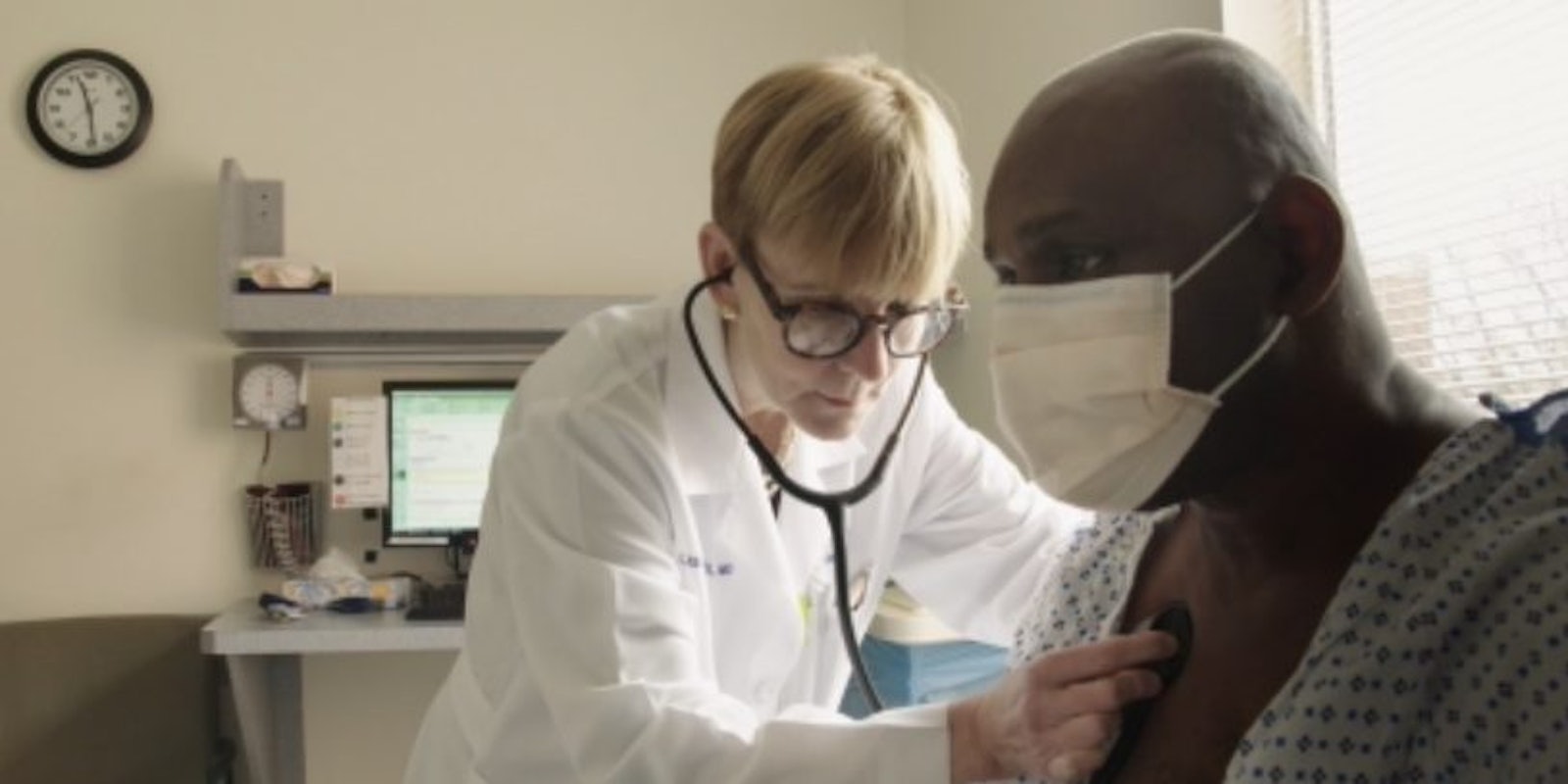Netflix’s medical docu-series Diagnosis is a feel-good show about getting help for people. That’s a very broad generalization of the show, admittedly. I say that because the show also left me with an icky feeling. Diagnosis focuses on people with rare, strange, and baffling ailments and looks for answers. The people featured in the show have been looking for answers for years to no avail. As a last gasp Hail Mary, these people are putting their medical problems out in the world in the hope that someone, somewhere will be able to crack the code. Each episode starts with a notice that the show’s intent is to inform and entertain. But it’s hard to be entertained by a show that is built on the misery of others. While the show offers hope to the previously hopeless, its main currency is anger and sadness.
RELEASE DATE: 8/16/2019
STREAMING: Netflix
Based on the New York Times Magazine column, ‘Diagnosis’ follows Dr. Lisa Sanders as she turns to the internet to crowdsource medical mysteries in hope of finding answers.
Diagnosis is adapted from the New York Times Magazine article written by Dr. Lisa Sanders. The goal of the article and show is for Dr. Sanders to shine a spotlight on people with heretofore undiagnosed illnesses. The stories go up on the internet and open the door for medical professionals, amateur medical sleuths, and anyone else to offer their two cents. By going outside the box, where people aren’t bound by an inane healthcare system, Dr. Sanders is able to help find elusive answers. There’s the case of Kamiyah, a young girl who inexplicably passes out at random. Or another child, Sadie, whose affliction causes frequent seizures. In the first episode, we meet Angel, a healthy and active 23-year-old, who has spent the last decade dealing with debilitating pain that leaves her incapacitated.
Each episode presents a patient and gives viewers a small taste of their day-to-day lives. Then Dr. Sanders comes in and takes the story and writes it up. It’s kind of like googling your own systems or self-diagnosing on WebMD, only on steroids. Responses flow in from all over the world, and it’s the most heartening moment of every episode. It’s always comforting to know that you’re not the only going through something, and there’s definite value in that. Add in the sheer volume of suggestions and suddenly people have a newfound sense of hope. This is like running a GoFundMe for information instead of money. That’s the rub with Diagnosis.
Diagnosis is, frustratingly, apolitical, but the entire series is basically a screed against the U.S. healthcare system. Nearly everyone featured in the show mentions the burden of their medical bills at some point. In the first episode, Angel mentions that she has been sued multiple times over unpaid medical bills. In these moments, Diagnosis feels like a horror story. Not only are these people struggling just to figure out what’s wrong with them, but the cost of exploratory tests and procedures is just as crippling as the illnesses themselves. Going back to Angel, to find her answer she has to travel to Turin, Italy for her diagnosis. She almost doesn’t go because of the potential costs, until an Italian doctor explains that the tests will be free. Can you imagine? A system free from the burden of bureaucracy that is allowed to focus on the patient’s well being?
While the goal of Diagnosis is to offer optimism for the afflicted, I don’t know how casual viewers can be anything other than angry. One of the running themes of Diagnosis is systemic failure. Doctors not knowing the answer to something is just part of the process of getting to the optimal outcome. While that’s an unavoidable and frustrating part of the process, the determination to solve these medical mysteries reinforces the show’s noble intentions. Misdiagnoses are part of the game. Unfortunately, so is the scenario where Willie, a man in his 40s suffering from memory loss, is denied healthcare from the VA, only to later learn that his condition is a result of his military service.
Diagnosis will hold the attention of medical mystery junkies and also people looking for human interest stories. Dr. Sanders is an empathetic conduit for the show’s subjects. She worked as a consultant on House, so she understands the appeal of the mystery aspect. There is a sense of satisfaction that comes from each episode ending with an answer for the viewers renewed hope for the afflicted. As I watch, think, and write about Diagnosis, I find myself coming back to hope. I hope that if I ever end up in this situation, I can remain optimistic until it’s cured. I hope that people continue to search high and low for answers. I hope people remain willing to help strangers from all over the world. Most of all, I hope for a reality where a show like Diagnosis doesn’t have to exist for people to get the help they need.
Still not sure what to watch on Netflix? Here are our guides for the absolute best movies on Netflix, must-see Netflix original series and movies, and the comedy specials guaranteed to make you laugh.


